If your dog is still leaking after glands are expressed, it can be frustrating and confusing. You may not know what to do or where to turn for help.
In this blog post, we will discuss some of the most common causes of dog leakage after glands are expressed, and how you can treat them. We will also provide some tips on how to prevent this from happening in the future.
- What Are Anal Glands In Dogs?
- Dog Leaking After Glands Expressed? Here’s What to Do
- What Causes Anal Gland Problems in Dogs?
- What Is Anal Gland Expression?
- Why Do Dogs Need Anal Gland Expression?
- Why Do Dogs’ Anal Glands “Leak”?
- Signs That Your Dog is Still Leaking After Its Anal Glands Are Expressed
- Why Does My Dog Keep Needing His Glands Expressed?
- Why Does My Dog Still Smell After Glands Expressed?
- How Do I Stop My Dogs’ Glands From Leaking?
- Can Dogs Express Their Own Glands By Licking?
- FAQs
- Q: What are anal glands in dogs?
- Q: What is the function of anal glands in dogs?
- Q: What is anal gland expression?
- Q: Why is my dog still leaking after its glands have been expressed?
- Q: What are the symptoms of anal gland problems in dogs?
- Q: Can you express your dog’s anal glands at home?
- Q: What should I do if my dog’s anal glands are still leaking after being expressed?
- Q: How can I prevent anal gland problems in my dog?
- Q: What are the risks of not addressing anal gland problems in dogs?
- Q: What is the best way to stop my dog from leaking after its anal glands have been expressed?
- In Conclusion
Dogs may continue to leak after their anal glands have been expressed due to several reasons including incomplete expression, impacted or infected glands, dietary issues, residual scent, inflammation in the anal sacs, or anal sac disease.
What Are Anal Glands In Dogs?

Anal glands, also known as anal sacs, are two small sacs located on either side of a dog’s anus. These glands produce a unique scent that serves as the dog’s individual “signature,” allowing it to mark its territory and communicate with other dogs.
The contents of these glands can be drained manually or surgically if necessary. In some cases, impacted or infected anal glands may require medical attention.
Anal gland problems are not typically life-threatening but can cause discomfort and pain for your pup if left untreated.
Left unchecked, an impacted anal gland can lead to infection and abscesses which require antibiotics and/or surgical treatment.
Regular expression of the anal glands through regular grooming is one of the best ways to prevent these uncomfortable and potentially dangerous problems.
If your dog scoots or licks his rear end excessively, it may be a sign that his anal glands are full or impacted and need attention.
If you wish to learn more, the NCBI did a great case study about anal glands in dogs.
15 Reasons Why Dog Is Leaking After Glands Expressed
There are instances when, even after a proper gland expression, your pet may continue to experience leakage, causing discomfort and concern.
Incomplete Expression
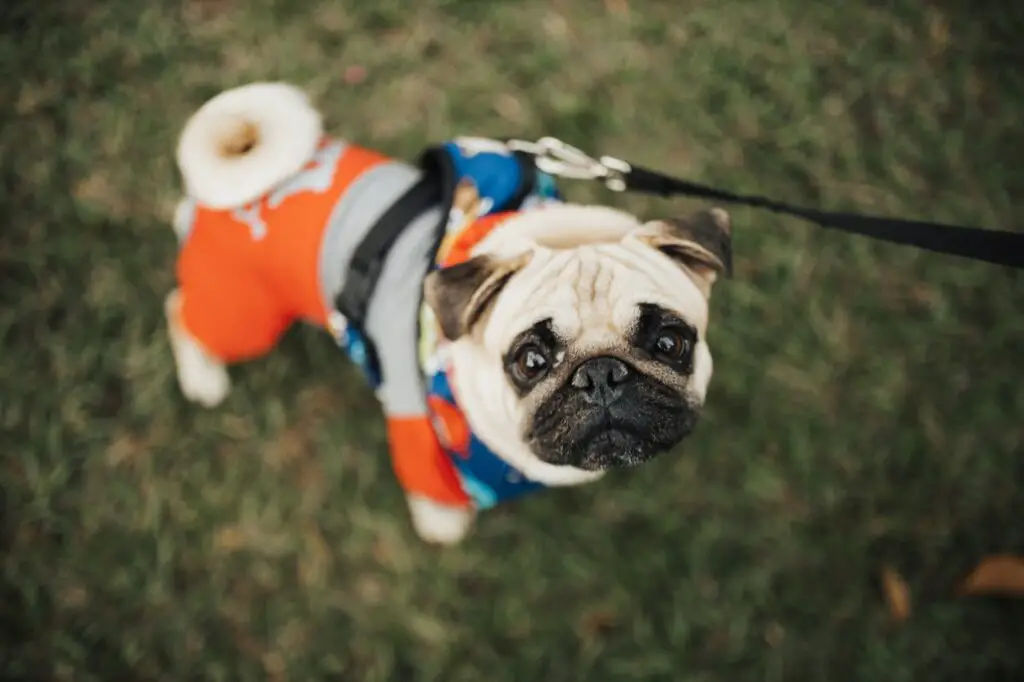
Incomplete expression is a common issue where the anal glands aren’t fully emptied, causing continued discomfort and leakage for the dog.
In my years of practice, I’ve encountered this with several patients.
The initial expression may not remove all the secretions, especially if the dog is restless or the glands are excessively full.
In such cases, a follow-up appointment is crucial. Sometimes, we have to use sedation for a more thorough procedure, ensuring the glands are completely emptied.
This typically resolves the leakage and the associated discomfort for the dog as per SNVH.
Infection

Anal gland infections are a frequent cause of persistent leakage post-expression. In my clinic, when a dog comes in with this issue, it’s standard to examine the discharge under a microscope or send it for culture.
This way, we can identify the responsible bacteria and choose the most effective antibiotic. Treatment often involves a course of oral antibiotics, and in some cases, we need to flush the glands with a medicinal solution.
If left untreated, an infection can lead to an abscess, which is much more painful and can lead to more severe complications says Shallowford Animal Hospital.
Abscess
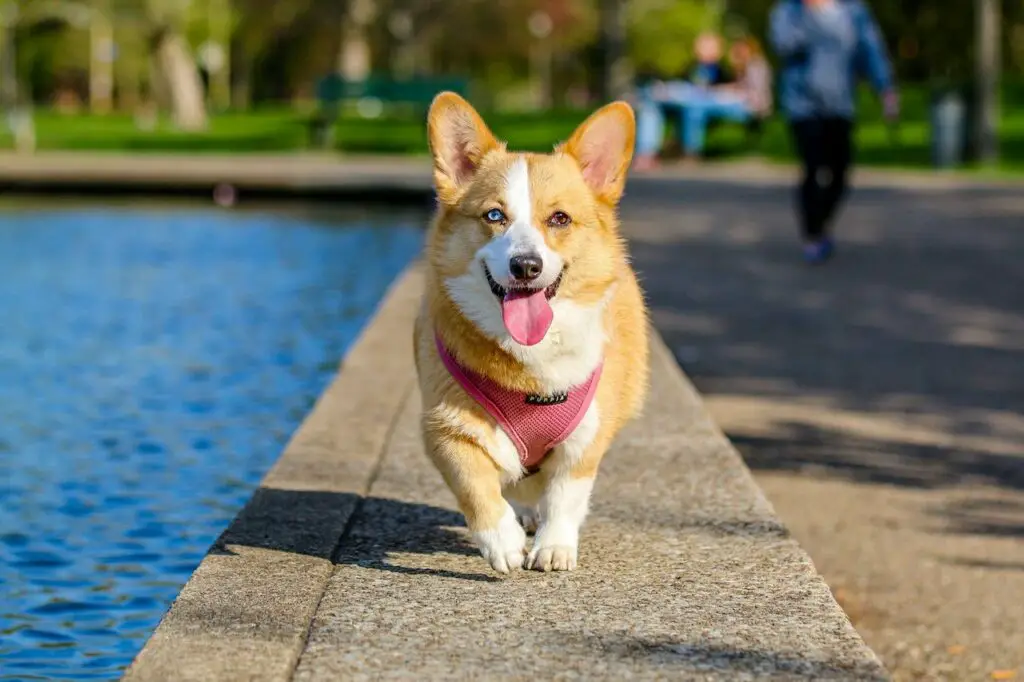
An abscess is usually a progression of an untreated anal gland infection, leading to the accumulation of pus inside the gland.
When this happens, the dog experiences significant discomfort, often scooting and licking the area excessively.
In my practice, treating an abscess involves first providing pain relief, then lancing and draining the pus, followed by a course of antibiotics to resolve any remaining infection.
Post-procedure care is vital, including keeping the area clean and returning for follow-up evaluations to ensure healing is progressing as expected.
Glandular Hyperplasia
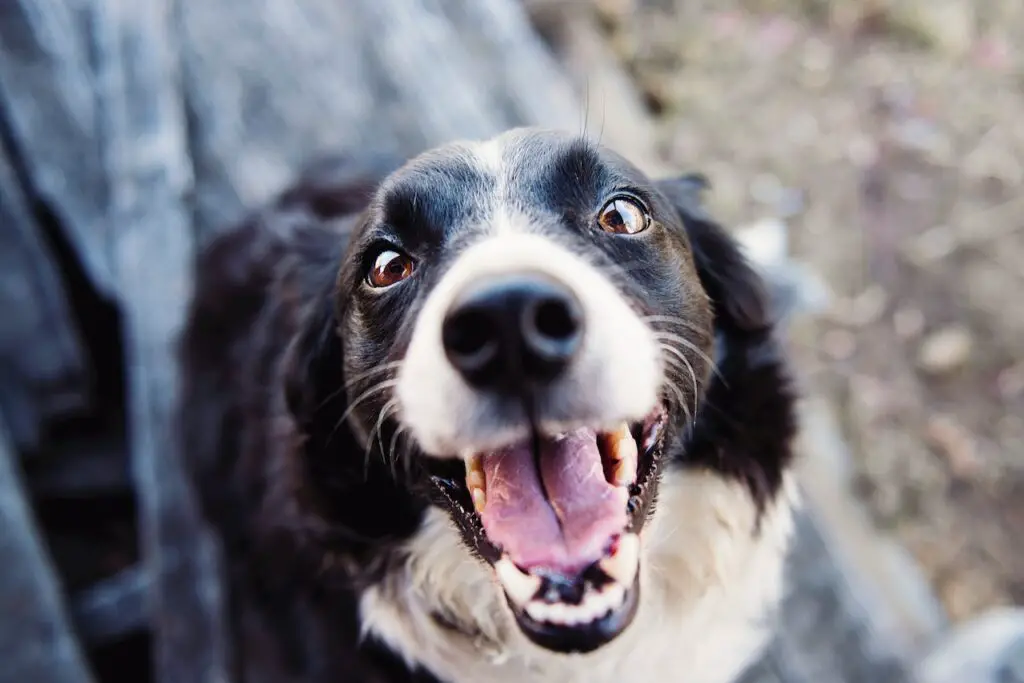
Glandular hyperplasia involves the thickening of the anal gland tissue, leading to excessive secretion production.
Dogs with this condition often need their glands expressed more frequently than usual.
In my experience, this condition can be managed with regular expressions, though severe cases sometimes require surgical intervention.
Surgery usually involves the removal of the affected tissue, and while it comes with risks like any operation, it can provide a permanent solution to a chronic problem as per PubMed Central.
Tumor
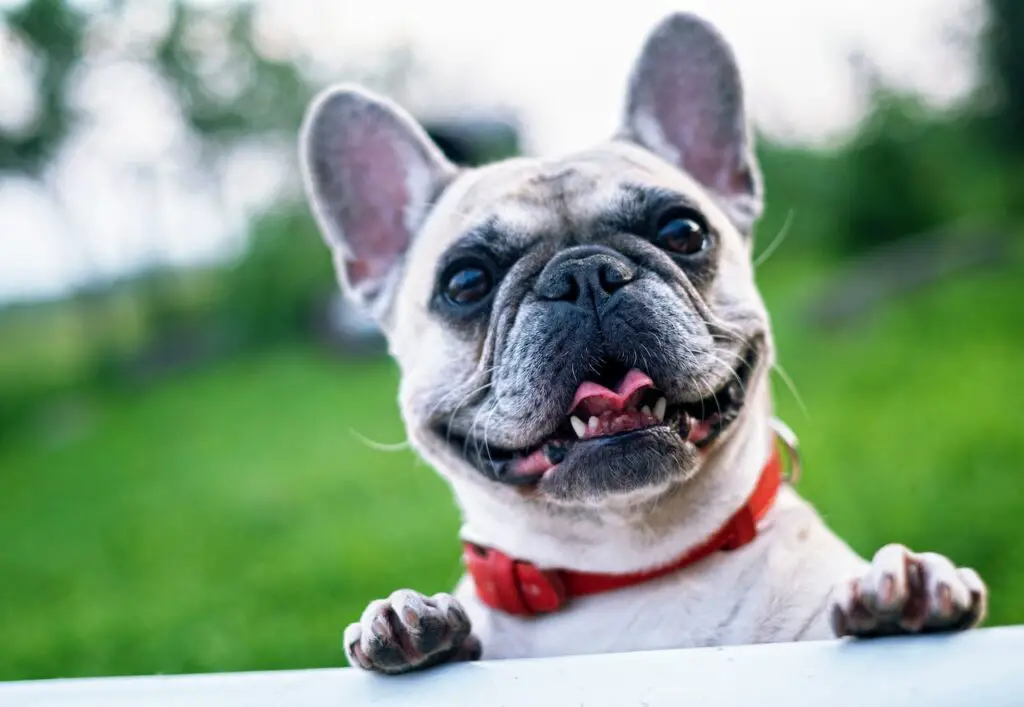
Tumors in the anal glands are rare but serious. They can obstruct the normal emptying of the glands, leading to constant discomfort and secretion.
When I suspect a tumor, I order a set of diagnostics, including blood work, imaging, and a biopsy of the mass.
If it’s determined to be cancerous, treatment options might include surgery, chemotherapy, or radiation, depending on the type and stage of cancer.
Early detection is crucial for the best prognosis, highlighting the importance of regular veterinary check-ups.
Allergies
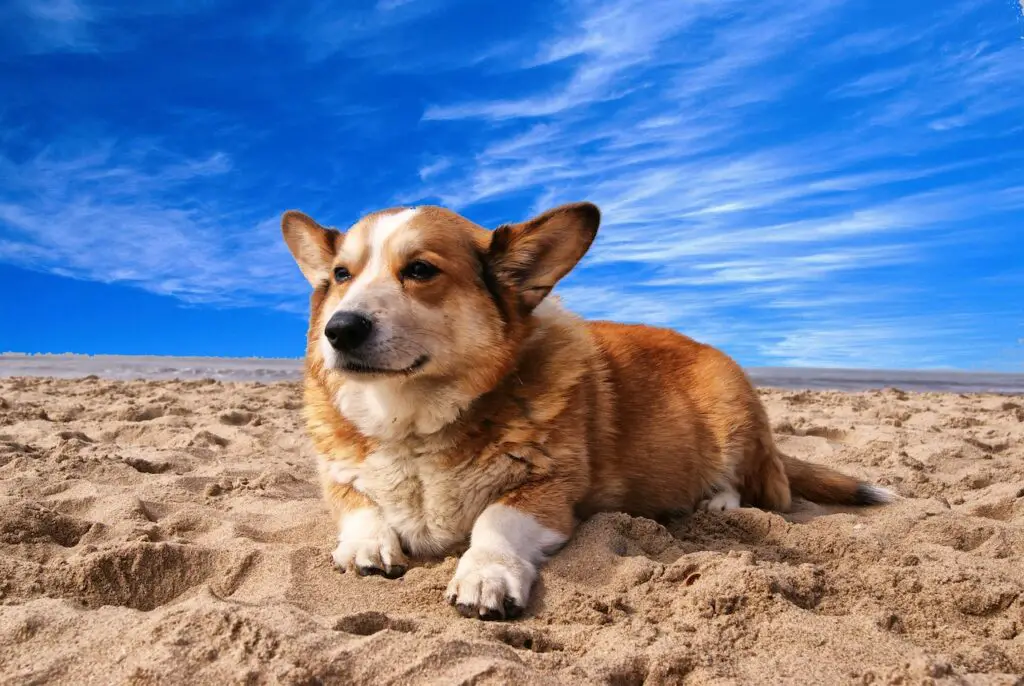
Dogs, like humans, can have allergies, and these can cause inflammation in various parts of the body, including the anal glands.
When I treat dogs with suspected allergies, we often start with an elimination diet to rule out food allergies.
Environmental allergies can be harder to diagnose and may require referral to a veterinary dermatologist.
Treatment can include antihistamines, special baths, or even immunotherapy. By managing their allergies, we can reduce the inflammation and the excessive secretion production in their anal glands says Vetnique.
Dietary Issues
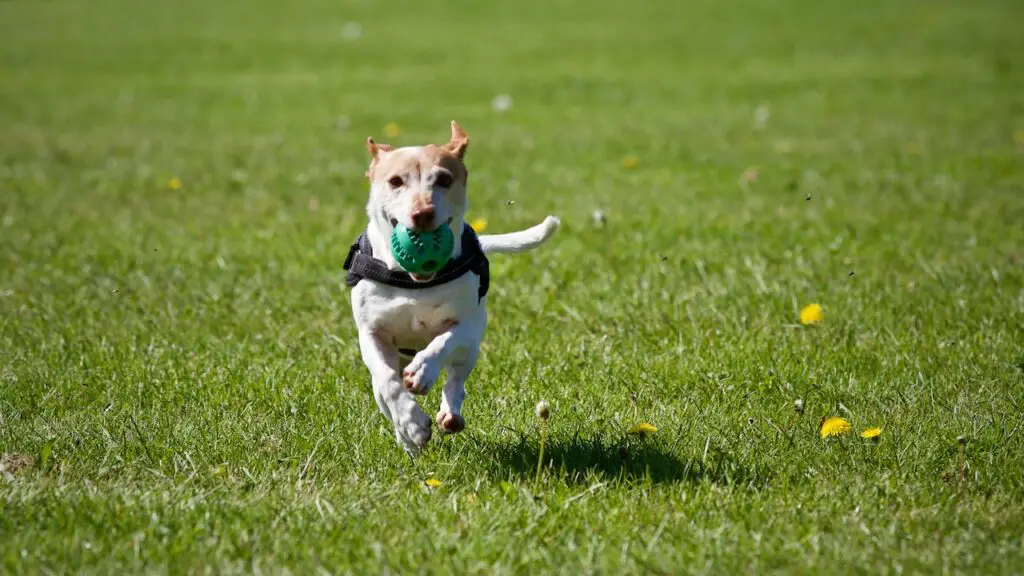
Diet plays a significant role in anal gland health. Dogs that eat diets low in fiber may have softer stools, which don’t press on the glands during defecation and therefore don’t naturally express them.
When I see patients with recurrent anal gland issues, one of the first things we discuss is diet. Increasing fiber intake can lead to firmer stools, which help naturally express the glands each time the dog defecates.
This simple change can significantly reduce the frequency of manual gland expressions needed.
Anatomical Abnormalities
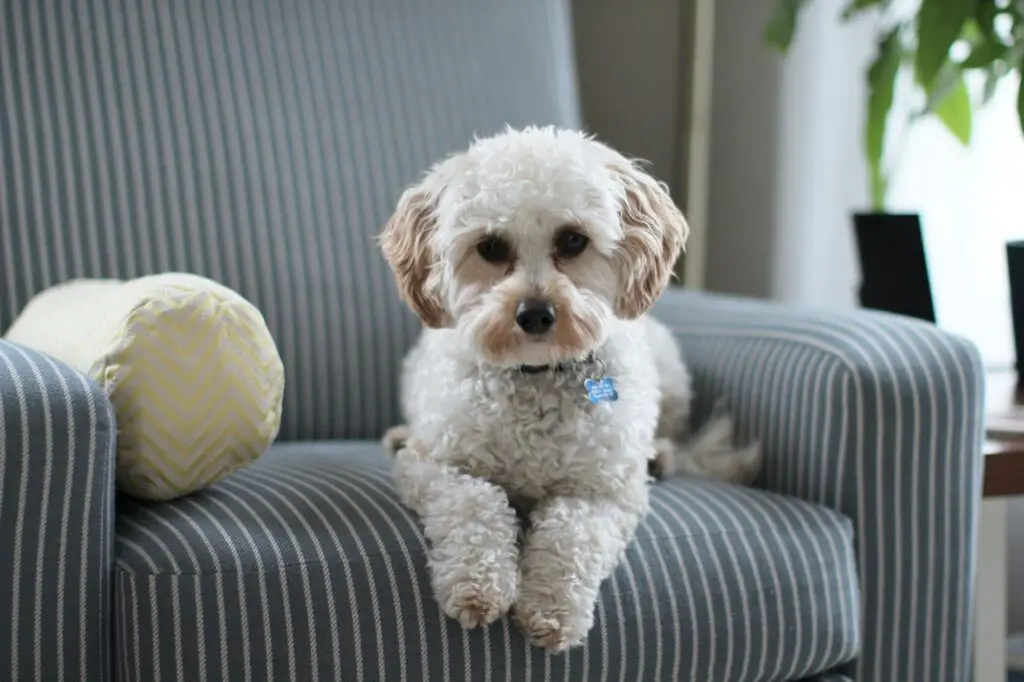
Some dogs are born with anatomical abnormalities in their anal glands. They may be positioned deeper than usual or have ducts that are narrower.
These dogs often present early in life with anal gland issues. In these cases, we have to be vigilant about regular gland expressions to prevent impactions, infections, or abscesses.
For those with severe issues, surgery to reposition or even remove the glands may be considered, though this is typically a last resort due to the risk of complications, such as fecal incontinence.
Chronic Inflammation
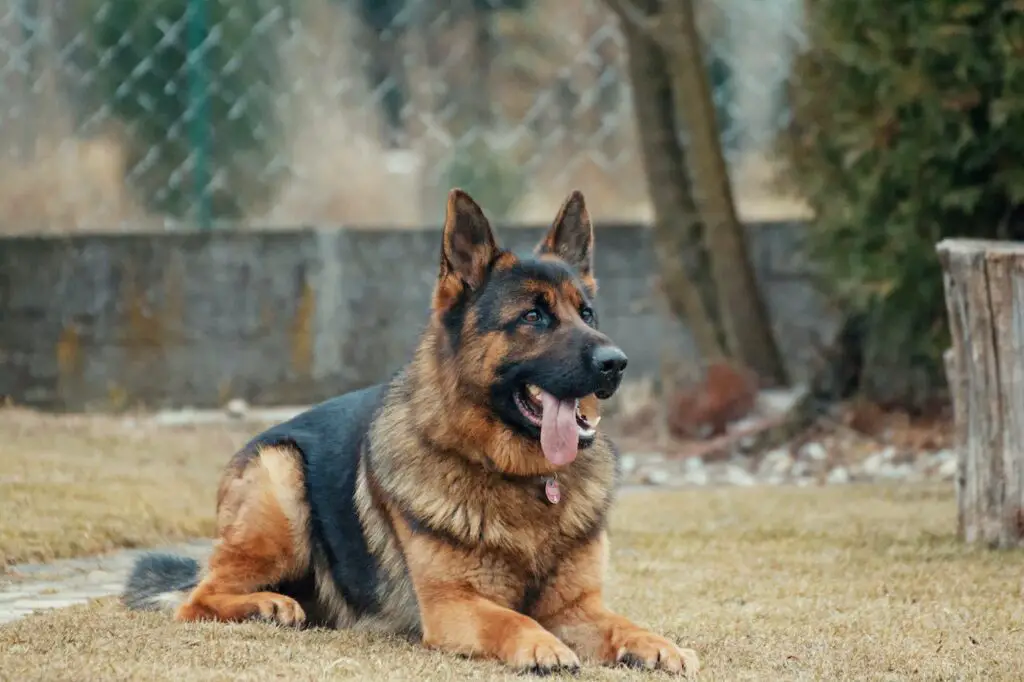
Chronic inflammatory conditions, like inflammatory bowel disease (IBD), can affect the entire gastrointestinal tract, including the anal glands.
Dogs with IBD often have other GI symptoms, such as diarrhea or vomiting. When treating a dog with IBD, we use a multi-faceted approach that includes dietary adjustments, medications to reduce inflammation, and sometimes antibiotics or probiotics.
By managing their IBD, we can also reduce the strain on their anal glands, leading to fewer issues and a more comfortable life says Dr. Michele K. from Wag.
Behavioral Issues
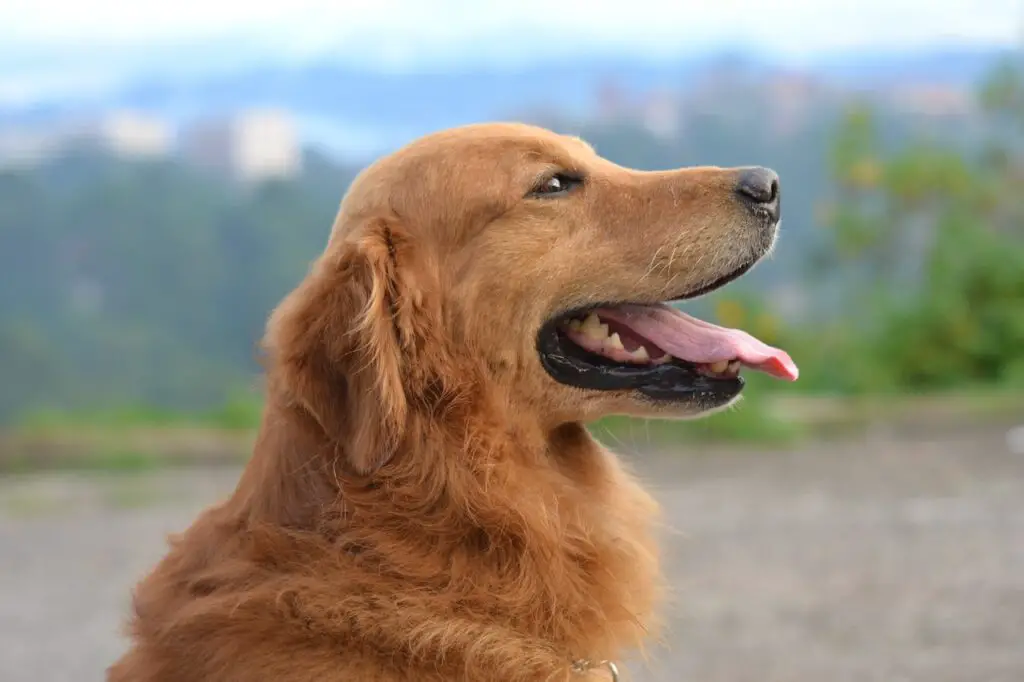
Sometimes, the issue isn’t physical but behavioral. Dogs with anxiety or obsessive-compulsive tendencies might scoot or lick their rear ends excessively, which can mimic the symptoms of anal gland issues.
In my practice, we often use a combination of behavior modification techniques, environmental enrichment, and, if necessary, anti-anxiety medications to help these dogs.
It’s amazing to see the improvement in their quality of life once their underlying anxiety is addressed.
Trauma to the Area
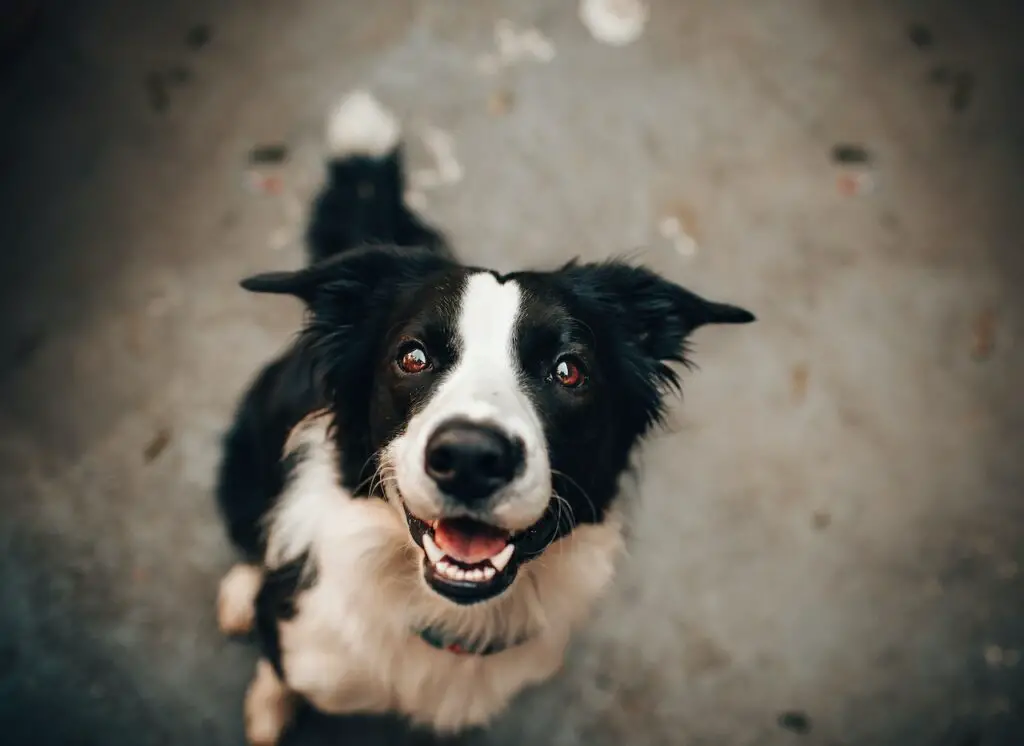
Trauma can be a direct injury to the area or can occur if the glands are expressed too forcefully.
When this happens, the area becomes inflamed and painful, leading to symptoms that can resemble those of an anal gland issue.
Treatment involves pain management, wound care, and antibiotics if there’s an open wound to prevent infection.
These cases require careful handling and patience, as the area is very sensitive and the dog is likely in a lot of discomfort.
Frequent Recurrence
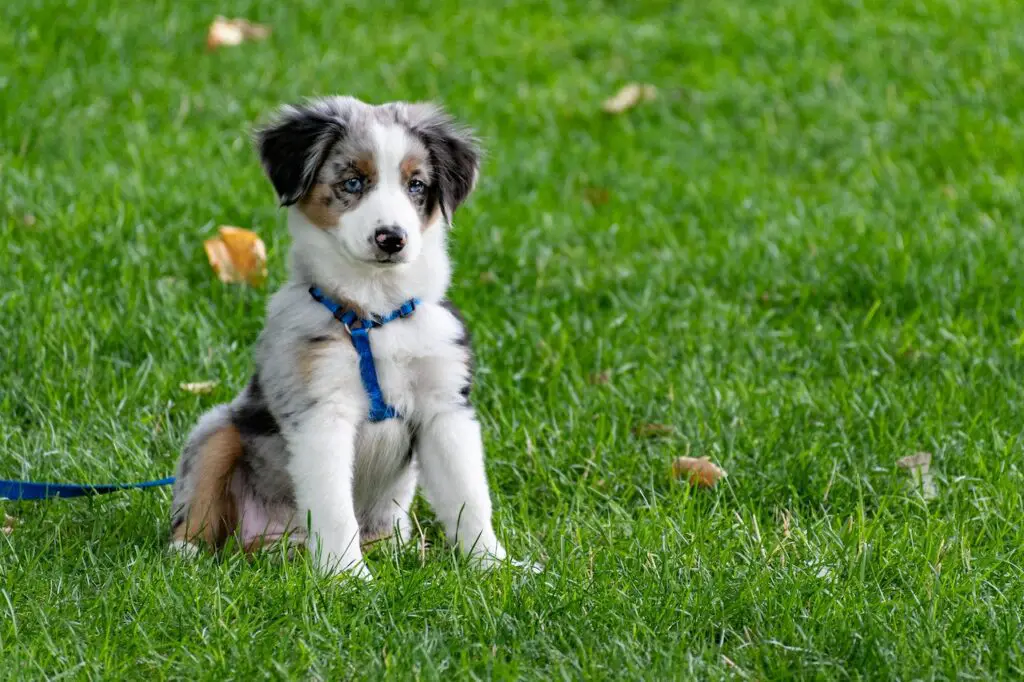
Some dogs just naturally produce more secretions than others. They may need their glands expressed monthly or even more frequently.
In my clinic, we teach owners to recognize the signs that their dog’s glands are full, and in some cases, teach them how to express the glands at home.
This ongoing management is essential for the dog’s comfort and to prevent more serious issues like impactions or infections.
Systemic Health Issues
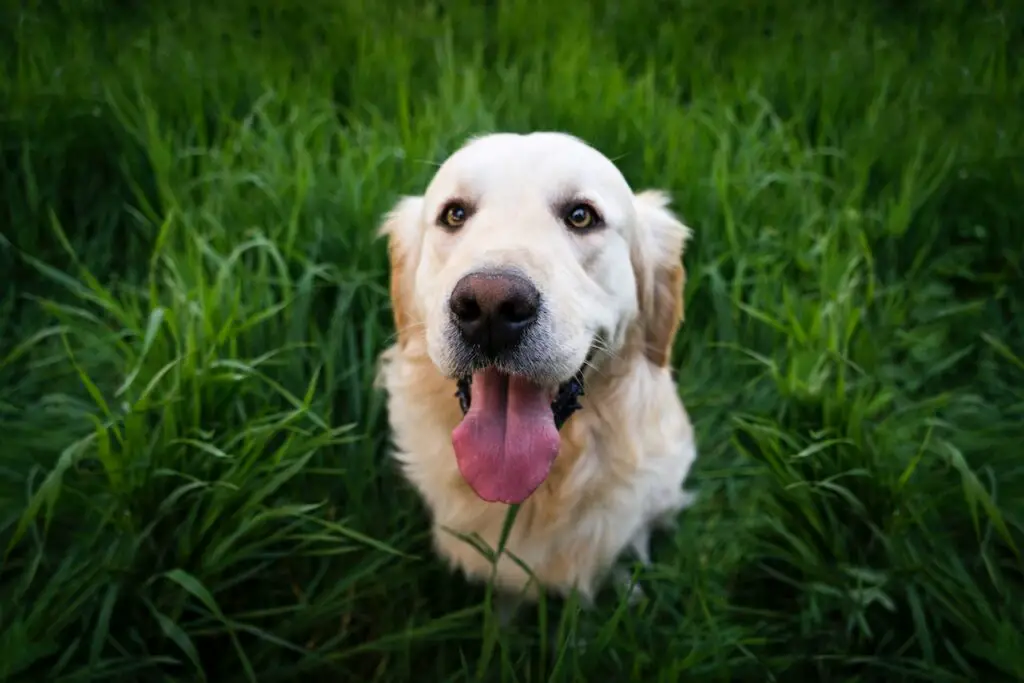
Sometimes, a dog’s anal gland issues are a symptom of a larger, systemic issue.
Conditions like hypothyroidism or Cushing’s disease can manifest in various ways throughout the body, including impacting anal gland health.
These complex cases require a thorough workup to diagnose the underlying condition, followed by a long-term management plan.
Treating the primary condition often resolves the secondary issues, including those with the anal glands.
Medications

Certain medications, especially those that affect stool consistency, can impact anal gland health.
For instance, if a dog is on long-term steroids for another condition, they may have softer stools, leading to inadequate gland expression.
In these cases, we might need to add a fiber supplement to their diet or consider alternative medications that don’t have this side effect says VCAHospitals.
Recent Change in Health Status
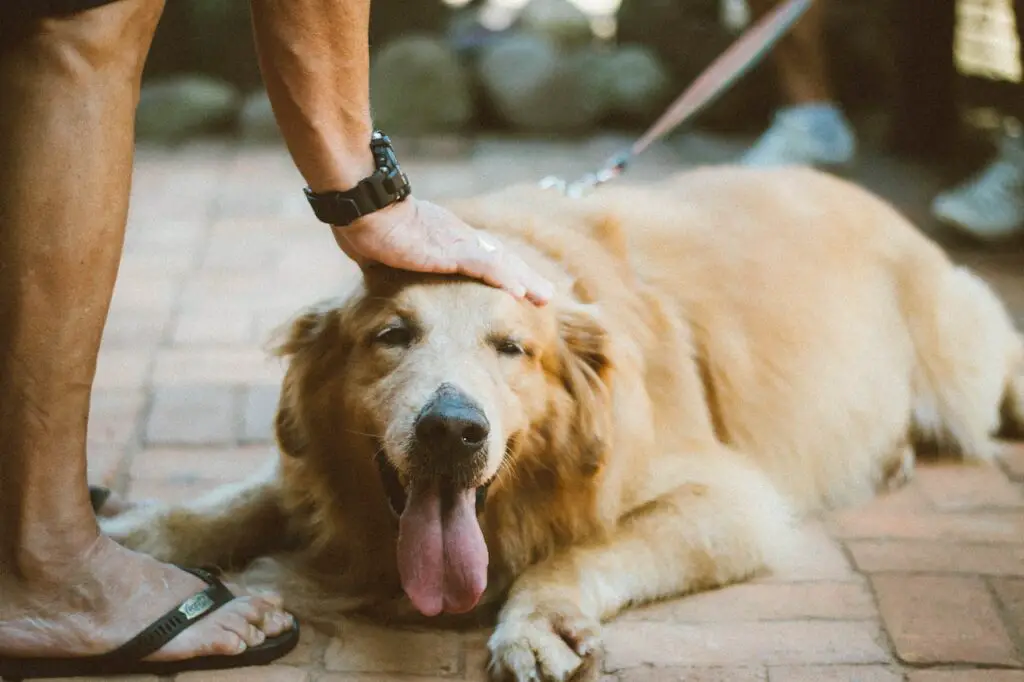
Dogs that have recently had a significant health event, like surgery or a serious illness, might start showing symptoms of anal gland issues.
This is often due to changes in their stool consistency, their level of physical activity, or their overall health status.
These cases require a holistic approach, considering the dog’s entire health picture and recent events, to find the best path forward.
10 Signs That Your Dog is Still Leaking After Its Anal Glands Are Expressed
Your dog may still be leaking after its anal glands are expressed if you notice signs such as persistent scooting, foul-smelling discharge, swelling around the anus, and more.
Persistent Scooting
Persistent scooting is a sign that your dog may still be experiencing discomfort or leakage from its anal glands even after they’ve been expressed.
When a dog’s anal glands are properly emptied, the discomfort and need to scoot should decrease significantly.
However, if you notice that your dog continues to scoot their rear on the ground persistently after the anal glands have been expressed, it’s a clear sign that something might still be amiss.
In my professional experience, dogs who continue to scoot post-expression are often dealing with residual discomfort or irritation in the anal area.
It’s possible that the glands weren’t fully emptied during the initial expression, leading to ongoing discomfort.
Alternatively, the scooting could be due to an underlying issue such as inflammation, infection, or even allergies, which can cause itchiness and irritation around the anus.
Foul-Smelling Discharge
Foul-smelling discharge is a key sign that your dog may still be leaking after its anal glands have been expressed.
Typically, the smell associated with anal gland secretions should lessen significantly after a successful expression. However, if you’re noticing a persistent foul smell from your dog’s rear end, it could indicate that the glands are still secreting fluid.
From my experience as a vet, this ongoing odor often relates to an incomplete expression of the anal glands, meaning some secretion was left behind.
Alternatively, it could also mean that there’s an infection or inflammation in the anal glands. These conditions can produce a distinctly foul-smelling discharge due to the presence of bacteria or pus says experts from AKC.
Swelling Around the Anus
Swelling around the anus is a clear indication that your dog might still be leaking or experiencing discomfort after its anal glands have been expressed.
When the anal glands are properly emptied, you should notice a reduction in swelling and discomfort for your dog. However, if swelling around the anus persists after expression, it’s a sign that there could be an ongoing issue.
In my time as a vet, I’ve seen this symptom in dogs who either had their glands incompletely expressed or are suffering from an infection or inflammation in the anal glands.
These conditions can cause the area around the anus to swell, leading to discomfort and potentially persistent leakage.
Excessive Licking of the Area
Excessive licking of the area is a significant sign that your dog may still be leaking or experiencing discomfort after its anal glands have been expressed.
Dogs tend to lick areas that are causing them discomfort, and the anal region is no exception.
If your dog continues to excessively lick their rear end after you’ve had their anal glands expressed, it could mean that they’re still feeling some discomfort or irritation.
In my years of veterinary practice, I’ve seen dogs continue this behavior for a few reasons.
Sometimes, it’s because the glands weren’t fully emptied during the initial expression, and they’re still feeling the need to alleviate the pressure or itchiness.
Other times, it could be due to an underlying issue such as inflammation, infection, or even allergies, which can cause itchiness and irritation around the anus.
Blood or Pus in the Discharge
Blood or pus in the discharge is a serious sign that your dog may still be leaking or experiencing complications after its anal glands have been expressed.
A healthy anal gland secretion is generally a clear to light brown fluid. If you’re noticing blood or pus in your dog’s discharge, it could indicate an infection or inflammation in the anal glands, or even an abscess or rupture.
Drawing from my veterinary experience, I’ve seen this alarming symptom in dogs who are dealing with such health issues.
Blood or pus in the discharge is not a normal occurrence and should be addressed immediately.
Infections, inflammation, or abscesses can cause a great deal of discomfort for your dog and may lead to serious complications if not treated promptly.
Whimpering or Signs of Pain
Whimpering or showing signs of pain is a crucial sign that your dog may still be leaking or experiencing discomfort after its anal glands have been expressed.
Dogs can’t verbally communicate their discomfort, so they often display it through behaviors like whimpering, yelping, or showing signs of distress.
If your dog exhibits these behaviors after having their anal glands expressed, it could mean they’re still experiencing discomfort, possibly due to incomplete expression or other complications such as infection or inflammation.
In my time as a vet, I’ve seen dogs react this way when they’re in pain. Sometimes, the discomfort is because the anal glands weren’t fully emptied, leaving residual pressure.
Other times, an underlying infection or inflammation could be causing the pain. In rare cases, more severe conditions like abscesses or tumors could be the culprits.
Difficulty Defecating
Difficulty defecating is a telling sign that your dog may still be leaking or experiencing discomfort after its anal glands have been expressed.
When dogs have trouble passing stools, it might be because they are experiencing discomfort or pain in the anal area.
If this difficulty arises after their anal glands have been expressed, it could indicate that the glands were not fully emptied or that there’s an underlying issue such as inflammation or infection.
From my experience in veterinary practice, I’ve seen dogs struggle to defecate due to these issues. Sometimes, the pressure from unemptied glands can make defecation painful or challenging.
In other cases, an infection or inflammation can cause the area to swell, making it difficult for the dog to pass stools comfortably.
Changes in Stool Consistency
Changes in stool consistency can be a notable sign that your dog may still be leaking or experiencing discomfort after its anal glands have been expressed.
When a dog’s stool changes in consistency, becoming too hard or too soft, it could be an indication of an issue with the anal glands.
After expression, if the glands were not fully emptied or if there’s an underlying inflammation or infection, it might affect the dog’s ability to defecate normally, leading to changes in the stool’s consistency.
In my veterinary practice, I’ve encountered dogs whose stool consistency changed post-anal gland expression.
Sometimes, the stool becomes harder due to the discomfort caused by incomplete gland expression, making it difficult for the dog to pass.
On the other hand, softer stools could indicate an infection causing irritation and inflammation in the anal area.
Redness or Irritation
Redness or irritation around your dog’s anal area can be a significant indication that they may still be leaking or experiencing discomfort after their anal glands have been expressed.
When a dog’s anal area becomes red or irritated post-expression, it could suggest that the glands were not fully emptied, leading to residual pressure and discomfort.
It could also point to an underlying issue such as inflammation or infection that’s causing the irritation.
Throughout my career in veterinary practice, I’ve seen dogs exhibiting redness or irritation in their anal area after gland expression.
Sometimes, this is due to incomplete gland expression that leaves the dog feeling uncomfortable. In other instances, an infection or inflammation could be the culprit, causing the area to become inflamed and irritated.
Fever
Fever in your dog can be a significant sign that they may still be leaking or experiencing discomfort after their anal glands have been expressed.
When a dog develops a fever post-anal gland expression, it could be a sign of an underlying infection or inflammation.
This might be due to the glands not being fully emptied, causing residual pressure and discomfort, or because an infection has set in, leading to a systemic response such as fever.
What To Do If Your Dog Is Still Leaking After Being Expressed
If your dog is still leaking after being expressed, there are several steps you can take to address the issue, ranging from consulting with a vet to maintaining regular check-ups and exploring long-term solutions.
Take Your Dog to the Vet
When a dog’s anal glands continue to leak post-expression, it often indicates that the glands weren’t fully emptied or there’s an underlying issue causing the leakage.
As a veterinarian, I’ve encountered numerous cases where a follow-up visit was necessary to address persistent problems.
During this visit, a comprehensive examination can help identify any residual gland material or signs of infection or inflammation.
It’s crucial not to delay this step, as prompt intervention can prevent potential complications and alleviate your pet’s discomfort.
Ask the Vet or a Professional Groomer to Express the Glands Again
If your dog continues to leak after their anal glands have been expressed, seeking the assistance of a vet or professional groomer to re-express the glands may be the right course of action.
This can lead to continued discomfort for your dog and further leakage. As a veterinarian, I’ve encountered many such instances. In these cases, having a professional re-express the glands can often alleviate the issue.
During my practice, I’ve found that a second expression can sometimes be more successful, especially if it’s done by an experienced professional who can ensure the glands are thoroughly emptied.
It’s also important to approach this process with care, as repeated expressions can cause irritation if not done properly.
Follow Any Recommended Dietary Changes
If your dog is still leaking after having their anal glands expressed, implementing any dietary changes recommended by a professional may help address the issue.
For instance, a diet rich in fiber can lead to firmer stools, which can naturally express the glands during defecation.
This reduces the need for manual expression and prevents leakage.
Similarly, certain foods might be causing inflammation or allergies in your dog, leading to issues with the anal glands. Identifying and eliminating these from your dog’s diet can help resolve the problem.
Consider Using Supplements
If your dog continues to leak after having their anal glands expressed, considering the use of dietary supplements may be beneficial.
In my years as a veterinarian, I’ve seen how certain dietary supplements can assist in managing anal gland issues in dogs.
Supplements that add fiber and probiotics to your pet’s diet can help bulk up their stools, aiding in natural gland expression.
Products containing ingredients like pumpkin or flaxseed are particularly beneficial as they are rich in insoluble fiber.
Similarly, certain formulas, such as Glandex, have been specifically designed to support healthy anal glands. These products often contain a blend of fiber, probiotics, and other beneficial ingredients.
Keep Your Dog Clean
If your dog continues to leak after having their anal glands expressed, maintaining cleanliness is crucial to prevent any potential infections and discomfort.
Ensuring that your dog stays clean after their glands have been expressed is an essential step in managing any leakage.
From my experience as a veterinarian, I’ve noticed that dogs can feel irritated or uncomfortable if the area around their anal glands isn’t kept clean, especially post-expression.
In my practice, I usually recommend a gentle cleaning of the area with a mild, hypoallergenic pet wipe.
This can be done at home and is particularly helpful in removing any residual fluid or excretions that might cause discomfort or lead to infection.
Use Protective Covers
If your dog continues to leak after their anal glands have been expressed, using protective covers can help keep both your pet and your home clean and comfortable.
As a practicing veterinarian, I’ve seen how protective covers can be a practical solution for managing leakage after a dog’s anal glands have been expressed.
These covers can range from specially designed dog diapers to furniture covers, all of which serve to contain the leakage and protect your home from any mess.
Dog diapers are particularly useful as they can be worn by your dog, catching any leaks directly.
They come in various sizes and designs, ensuring that you can find one that fits your dog comfortably.
In my practice, I’ve recommended these to many pet owners dealing with this issue, and they’ve found them to be a valuable tool in managing their dog’s condition.
Monitor Closely
If your dog continues to leak after their anal glands have been expressed, close monitoring of their condition is crucial to ensure any changes or worsening symptoms are caught early.
From my professional experience, I recommend paying attention to the frequency and volume of the leakage.
If the leakage continues beyond a couple of days post-expression, or if it increases over time, this could be a sign of an underlying issue such as an infection or impacted glands.
Additionally, look out for other signs such as changes in your dog’s behavior, discomfort, or signs of distress.
These could include excessive licking or biting at the rear end, difficulty sitting, or changes in appetite or activity levels.
Maintain Regular Vet Visits
If your dog continues to leak after their anal glands have been expressed, maintaining regular vet visits is key to tracking their progress and addressing any potential issues early.
For instance, your vet can ensure that the anal glands were completely expressed during the initial procedure.
Sometimes, incomplete expression could be the reason for continued leakage, as some fluid might still be left in the glands. Regular visits would help identify this issue and correct it promptly.
Moreover, your vet can also examine your dog for signs of complications such as impacted or infected glands, which can cause persistent leakage.
Early detection of these issues through regular vet visits can prevent them from escalating into more serious health problems.
Explore Long-term Solutions
If your dog continues to leak after their anal glands have been expressed, exploring long-term solutions like dietary changes and regular exercise can help manage the situation for the long haul.
One such solution is dietary modification. Many canine health issues, including anal gland problems, can be linked to diet.
A diet high in fiber, for instance, can help firm up your dog’s stools, which in turn can aid in naturally expressing the anal glands during defecation. In my practice, I’ve seen how switching to a high-fiber diet has helped many dogs with persistent leakage issues.
Regular exercise is another long-term solution that I often recommend. Exercise helps stimulate bowel movements, which can aid in naturally expressing the anal glands. Plus, it’s a great way to keep your dog healthy overall.
Provide Comfort and Reassurance
If your dog continues to leak after their anal glands have been expressed, providing comfort and reassurance can help ease their distress and promote healing.
From a physical comfort standpoint, you can use a soft, damp cloth to gently clean the area around your dog’s rear end.
This can help remove any residual fluid and reduce irritation. It’s important to be gentle and patient during this process, as your dog may be feeling sensitive.
Reassurance can come in many forms. Maintaining a calm demeanor and offering your dog plenty of affection can go a long way in helping them feel secure.
Remember that your dog may not fully understand what’s happening, so your comforting presence can provide a sense of safety and security.
Steps On How to Prevent Dog’s Anal Glands From Leaking
Preventing a dog’s anal glands from leaking can be achieved through several methods such as maintaining a healthy diet, ensuring regular exercise, keeping the rear end clean, and with the aid of warm compresses.
Regular Gland Expressions
Regular gland expressions can be an effective measure in preventing your dog’s anal glands from leaking.
As a veterinarian, regular gland expressions have proven to be one of the most effective preventive measures against anal gland leakage in dogs.
This procedure involves gently squeezing the anal area to help release the fluid build-up in the glands.
This could be done externally using a tissue or cloth, or internally with a gloved finger for a more thorough expression.
In my practice, I’ve seen how regular gland expressions can significantly reduce the occurrence of anal gland leakage in dogs.
However, it’s important to note that this procedure should be done by a professional, as incorrect techniques can cause discomfort or even injury to your dog.
I recall a case of a Cocker Spaniel named Daisy who had persistent issues with anal gland leakage.
After discussing with the owner, we decided to implement regular gland expressions as part of Daisy’s healthcare routine.
Over time, this significantly reduced the frequency of leakage, improving Daisy’s comfort and quality of life.
Dietary Adjustments
Dietary adjustments, particularly increasing fiber intake, can play a significant role in preventing your dog’s anal glands from leaking.
In my years as a veterinarian, I’ve observed that dietary adjustments can significantly impact a dog’s overall health, including the health of their anal glands.
One of the most beneficial changes you can make is to increase your dog’s fiber intake, which can help create firmer stools.
These firmer stools can naturally press against the anal glands during defecation, leading to a natural expression of the glands and preventing leakage.
I’ve had several canine patients, such as a Beagle named Sam, who suffered from frequent anal gland leakage.
After ruling out other health issues, we decided to adjust Sam’s diet, increasing his fiber intake by incorporating foods like canned pumpkin and high-fiber dog food into his meals.
Over time, this dietary change resulted in firmer stools and less frequent leakage, greatly improving Sam’s comfort and quality of life.
Weight Management
Weight management is a crucial factor in preventing anal gland leakage in dogs.
In my experience as a veterinarian, maintaining an appropriate weight for your dog can significantly reduce the risk of anal gland issues, including leakage.
Overweight dogs often struggle with anal gland problems due to the additional pressure exerted on the glands by excess fat around the anal area.
I’ve seen several cases where weight loss has helped alleviate anal gland leakage in overweight dogs. One such case was a Bulldog named Max who was significantly overweight.
Max’s owner was diligent in implementing a weight loss plan that included portion control and regular exercise. As Max lost weight, his anal gland leakage issues improved substantially.
Increase Physical Activity
Increasing your dog’s physical activity can help in preventing anal gland leakage by strengthening their rectal and abdominal muscles.
I remember a case where a Golden Retriever named Buddy was having regular issues with his anal glands leaking.
After ruling out any serious health concerns, we decided to increase Buddy’s physical activity. His owners were encouraged to take him for longer walks and engage him in more energetic play sessions.
Over time, we noticed a significant reduction in Buddy’s anal gland leakage. The increased physical activity had strengthened Buddy’s core muscles, making it easier for him to naturally express his anal glands.
Regular Veterinary Check-ups
Regular veterinary check-ups are essential in preventing anal gland leakage in dogs as they help in early detection and management of potential issues.
In my veterinary practice, I cannot stress enough the importance of regular check-ups for maintaining your dog’s health, including the health of their anal glands.
These check-ups allow for early detection of anal gland issues, which can then be addressed before they become serious problems.
Monitor for Early Signs
Monitoring for early signs of discomfort or changes in behavior can help prevent anal gland leakage in dogs by allowing for timely intervention.
Owners who are vigilant about their dog’s behavior often catch potential problems before they escalate.
One such case was a German Shepherd named Bruno. His owner noticed that he had started scooting on the carpet and licking his rear end more than usual.
Concerned, she brought Bruno in for a check-up. Upon examination, it was clear that Bruno’s anal glands were impacted, which if left untreated, could have led to leakage or even infection.
We were able to express his glands and provide advice on dietary changes to support his anal gland health.
Maintain Hygiene
Maintaining hygiene, particularly in the rear end area, can help prevent anal gland leakage in dogs by reducing skin irritation and neutralizing unpleasant odors.
I recall a case with a Shih Tzu named Daisy who was prone to anal gland issues due to her long hair and low-slung body.
Her owners were diligent about regular grooming, but they hadn’t considered the importance of maintaining hygiene around her anal area specifically.
Daisy was experiencing discomfort and a noticeable odor was present. After expressing her glands and treating her for a minor skin infection, I advised her owners to incorporate regular cleaning of her rear end into their grooming routine.
They started using pet-friendly wipes to clean Daisy’s anal area daily, and this simple change made a remarkable difference. Daisy’s discomfort eased, the odor disappeared, and her anal gland issues became far less frequent.
Supplements
As a veterinarian, I’ve found that dietary supplements can be a powerful tool in supporting the health of a dog’s anal glands.
Supplements that promote digestive health and normal bowel function can help ensure regular and firm stools, which in turn can help express the anal glands naturally during defecation.
Explore Surgical Options (if recommended)
Exploring surgical options, when recommended by a veterinarian, can be an effective measure to prevent anal gland leakage in dogs, especially when other treatments have not been successful.
In my years as a veterinarian, I’ve seen dogs with recurrent or severe anal gland issues that were not responsive to non-surgical treatments. In such cases, surgical intervention can provide a permanent solution.
However, surgery is not without risks and is typically considered a last resort. Potential complications can include infection, anal incontinence, and discomfort during the healing process.
Hence, it’s crucial to have a thorough discussion with your vet about all possible treatment options, their benefits, and risks.
Education and Awareness
Education and awareness about a dog’s anal glands, their function, and signs of problems can go a long way to prevent leakage and ensure your pet’s overall well-being.
As a veterinarian, one of the most important parts of my job is educating pet owners about their pets’ health.
Understanding the purpose of a dog’s anal glands and recognizing signs of potential issues are crucial steps in preventing problems like anal gland leakage.
How To Know That Your Dog’s Glands Are Empty
Knowing that your dog’s anal glands are empty typically involves observing a lack of discomfort in your pet, no unusual smells, and no signs of scooting or excessive licking at their rear.
Observing Comfort and Normal Behavior
As a veterinarian, I often remind pet owners that one of the primary indicators that a dog’s anal glands are functioning correctly is the absence of discomfort or unusual behavior.
A dog whose anal glands are empty will not exhibit signs of irritation such as scooting their bottom along the floor, excessively licking their rear, or showing pain when defecating.
One case that comes to mind is Bella, a Golden Retriever who was brought into my practice due to her constant scooting and visible discomfort.
After a thorough examination and expression of her anal glands, Bella’s behaviors subsided. Her owner was then able to recognize that Bella’s comfort and cessation of scooting indicated her anal glands were no longer causing her distress.
Absence of Unusual Smells
Another sign that your dog’s anal glands are empty is the absence of an unusual, often pungent, smell. Anal glands can emit a fishy odor when they’re full or infected. If your dog does not have this smell, it’s likely their anal glands are empty.
I recall treating a Beagle named Oliver who had a noticeable foul smell. His owner hadn’t recognized the scent as a potential sign of full anal glands. Once we addressed the issue and emptied Oliver’s glands, the smell disappeared, indicating his glands were now empty and functioning normally.
Regular and Firm Stools
Regular and firm stools can also indicate that your dog’s anal glands are empty. The pressure from firm stools naturally helps to express the anal glands during defecation.
If your dog’s stools are normal and they show no signs of discomfort while defecating, this is usually a good sign that their anal glands are empty.
Why Does My Dog Keep Needing His Glands Expressed?
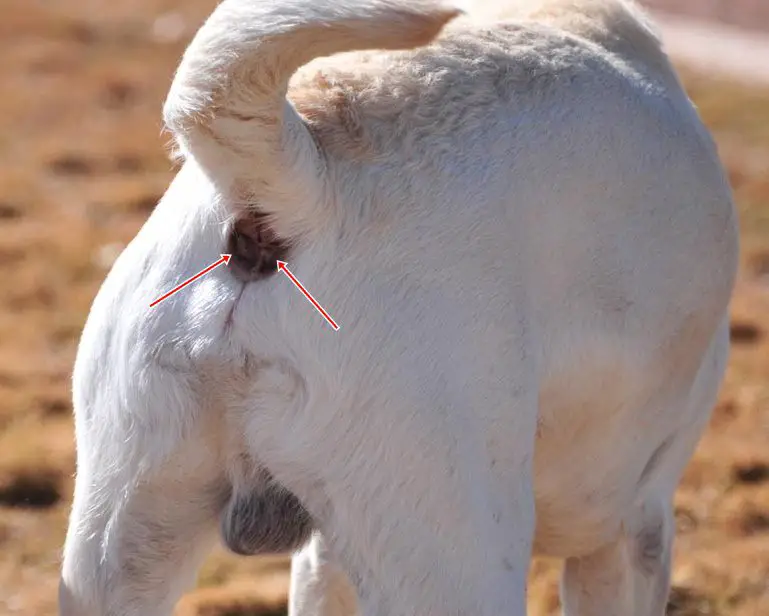
There are a few reasons why your dog may need his glands expressed more frequently than others. One reason could be the type of food you’re feeding him. If your dog is eating a lot of processed foods, it can cause his glands to become impacted more easily.
There are a few different types of food that can contribute to anal gland problems in dogs. One type of food is anything that is high in fiber. This includes things like corn, wheat, and rice.
Another type of food is anything that is high in fat. This includes things like chicken skin, pork fat, and beef fat.
Finally, there are certain types of dog food that are specifically made for anal gland problems. These foods usually contain extra fiber and omega-three fatty acids.
Another reason why your dog keeps needing his glands expressed is not enough exercise. A lack of exercise can lead to weight gain, which puts pressure on the glands and makes them more likely to become blocked or infected.
Additionally, excess weight can make it difficult for a dog to express their anal glands naturally. This can also lead to various problems.
Finally, if your dog has any medical conditions that affect the anal area, such as allergies or infection, it can also cause problems with the glands.
There are a few different medical conditions that can cause the need for gland expression more often in dogs. One is anal sac disease, which is when the anal sacs become infected or blocked. This can be quite painful for dogs and will usually require frequent expressions.
Another condition is perianal fistulas, which are open sores around the anus. These can also be quite painful and may require regular expressions to help keep them clean.
Why Does My Dog Still Smell After Glands Expressed?
There are a few reasons why your dog may still smell after having their glands expressed.
Reason 1: Residual Scent
Even after your dog’s anal glands have been expressed, there may still be some residual scent left. This lingering smell can persist until the area is thoroughly cleaned.
Reason 2: Incomplete Expression
If the anal glands were not completely expressed during the initial procedure, some fluid might still be present, causing the odor to persist.
Reason 3: Infection
An infection in the anal glands can cause a persistent, foul odor. If your dog’s anal glands are infected, they may require additional treatment, such as antibiotics, to resolve the issue.
Reason 4: Recurring Impaction
Some dogs are more prone to anal gland issues. Their glands may fill up and become impacted again shortly after being expressed. This can cause the odor to return quickly.
Reason 5: Other Health Issues
Sometimes, the smell may not be directly related to the anal glands. It could indicate other health issues, such as skin infections or gastrointestinal problems. These conditions may also produce unpleasant odors and require veterinary attention.
How To Stop a Dog Glands From Leaking
There is no effective way to stop your dog’s glands from leaking. However, you can take steps and make it less messy.
Step 1: Maintain a High-Fiber Diet
Feeding your dog a high-fiber diet can help promote healthy bowel movements. This in turn can help express the anal glands naturally during defecation.
Step 2: Ensure Regular Exercise
Regular exercise encourages healthy digestion and bowel movements, which can aid in preventing anal gland issues.
Step 3: Monitor Your Dog’s Weight
Overweight dogs are more prone to anal gland problems. Keep your dog at a healthy weight by providing an appropriate diet and regular exercise.
Step 4: Schedule Regular Grooming
Regular grooming appointments can help maintain your dog’s hygiene, including expressing the anal glands if necessary. A professional groomer can identify and address potential issues before they become problematic.
Step 5: Learn How to Express the Glands Yourself
With guidance from your veterinarian, learn how to express your dog’s anal glands safely at home. This can help you manage any issues before they worsen and prevent leakage.
Step 6: Monitor Your Dog’s Behavior
Keep an eye on your dog’s behavior, such as scooting, licking, or signs of discomfort. These may indicate anal gland issues. Addressing these signs early can help prevent leakage.
Step 7: Consult Your Veterinarian
If your dog continues to experience anal gland leakage despite these preventative measures, consult your veterinarian for further evaluation. They may recommend additional treatments or interventions to manage the problem effectively.
FAQs
Q: What are anal glands in dogs?
A: Anal glands in dogs are two small sacs located on either side of the dog’s anus. They contain a secretion that is used for marking and communication with other dogs.
Q: What is the function of anal glands in dogs?
A: The function of anal glands in dogs is to release a secretion that marks their territory and communicates with other dogs. In some cases, these glands can become impacted and cause the dog discomfort.
Q: What is anal gland expression?
A: Anal gland expression is the process of manually squeezing the anal glands to release their contents. This is typically done by a veterinarian or groomer. But, it can also be done at home by owners who are experienced with the process.
Q: Why is my dog still leaking after its glands have been expressed?
A: There are several reasons why a dog may still be leaking after its anal glands have been expressed. These include an anal gland problem that requires further treatment, an infection in the anal area, or an issue with the anal sacs.
Q: What are the symptoms of anal gland problems in dogs?
A: The symptoms of anal gland problems in dogs include scooting on the ground, licking or biting the anus, and a foul odor coming from the area. In some cases, the dog may also be lethargic or have a loss of appetite.
Q: Can you express your dog’s anal glands at home?
A: Yes, you can express your dog’s anal glands at home, but it is important to do so correctly to avoid causing injury or infection. It is recommended that owners seek guidance from a veterinarian or professional groomer before attempting to express their dog’s anal glands at home.
Q: What should I do if my dog’s anal glands are still leaking after being expressed?
A: If your dog’s anal glands are still leaking after being expressed, you should contact your veterinarian to determine the underlying cause of the issue and appropriate treatment.
Q: How can I prevent anal gland problems in my dog?
A: Some ways to prevent anal gland problems in dogs include keeping your dog at a healthy weight, providing plenty of exercise, and adding fiber to their diet. Regular grooming and visits to the veterinarian can also help detect and address any potential issues early on.
Q: What are the risks of not addressing anal gland problems in dogs?
A: If anal gland problems in dogs are not addressed, they can lead to inflammation, infection, and abscesses in the anal area. This can be painful and uncomfortable for the dog and may require more extensive treatment.
Q: What is the best way to stop my dog from leaking after its anal glands have been expressed?
A: The best way to stop your dog from leaking after its anal glands have been expressed is to address the underlying cause of the issue. This may require further treatment or management, such as medication or a change in diet.
In Conclusion
It’s essential to be vigilant about your dog’s anal gland health. Monitor them for any signs of leakage or discomfort after their glands have been expressed.
Persistent odor, scooting, excessive licking, and other symptoms may indicate that the glands are still leaking or experiencing issues.
Maintaining a high-fiber diet, ensuring regular exercise, and consulting with your veterinarian when necessary can help prevent and address anal gland problems in dogs.
By taking these proactive steps, you can ensure your furry friend remains comfortable, healthy, and happy.




